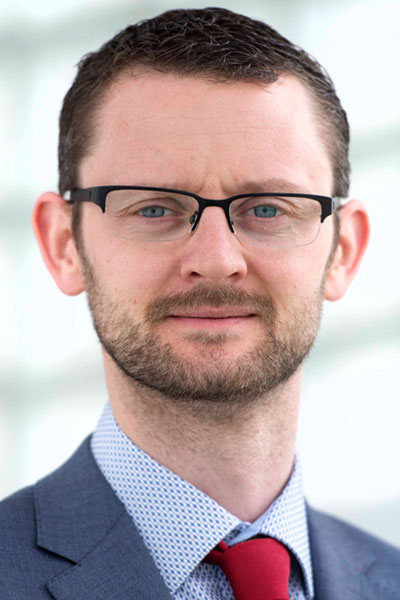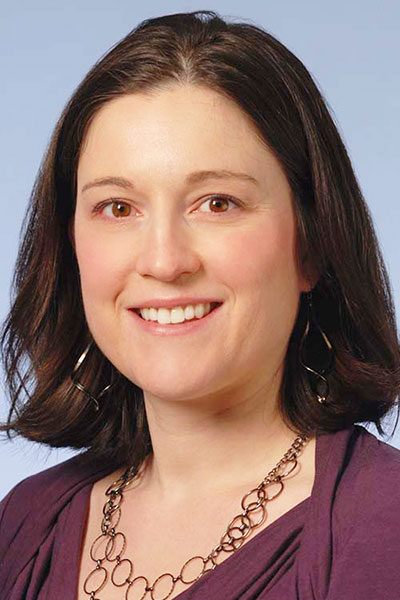Smoking has long been an obvious risk factor for developing lung cancer, but it is increasingly apparent that it is not the sole risk factor. A growing percentage of lung cancers throughout the world are being diagnosed in individuals who have never smoked cigarettes.

“We don’t have a clear sense as to why. There are data showing that pollution—particulate matter 2.5 microns and smaller—could play a bigger role than we had previously appreciated,” said Robert Smyth, MD, MSc, Assistant Professor of Medicine at the University of Iowa and Director of Lung Cancer Screening at the University of Iowa VA Medical Center. “We are seeing more lung cancer in the young than ever before. If you have lungs, you are at risk for lung cancer.”
As the understanding of lung cancer risk evolves, so too must the criteria for early detection of the disease. The panel discussion, Beyond Smoking: Identifying Those With Lung Cancer Risk, on Tuesday, from 7:15 am to 8:15 am, in Room 311 of the convention center, will address new screening strategies and address emerging patient populations, including patients who have never smoked, individuals who are immunosuppressed, and young people.

The chair of the session will be Catherine R. Sears, MD, Associate Professor of Pulmonary, Critical Care, Sleep and Occupational Medicine at Indiana University School of Medicine and Director of the Indianapolis VA Lung Cancer Screening Program. Other presenters will include Dr. Smyth; Viswam Nair, MD, MS, of the Fred Hutchinson Cancer Center and the University of Washington Medical Center; and Vivek Murthy, MD, FCCP, of NYU Langone Health.
“Most of the research that has gone into lung cancer, even the basic science research, has largely drawn on those who have developed lung cancer by smoking cigarettes,” Dr. Sears said. “When we talk about screening and diagnosing lung cancer early, people who have never smoked, who smoke or have a light cigarette smoking history, or have some other exposure, have been left out. So have those with TB and HIV infections or interstitial lung disease who we know are at increased risk for lung cancer.”
The strong causal relationship between tobacco smoking and lung cancer made it relatively easy to design screening trials and algorithms in the past, Dr. Smyth said. The absolute risk of lung cancer for individuals who have never smoked or have a history of light smoking is orders of magnitude lower than for individuals who smoke heavily. Trial designs that include individuals who have never smoked, who smoke lightly, and those with other risk factors need much larger populations and longer follow-up to provide reliable risk estimates.
Family history also plays a role in lung cancer risk, Dr. Sears said, though how large a role remains unclear. The risk associated with environmental factors, such as secondhand smoke and other particulate matter, is real but not yet well-defined.
“We have new screening information coming out of Asia—China and South Korea in particular—looking at those who smoke or have a heavy cigarette smoking history, similar to our lung cancer screening population, but also those who have other risk factors,” she said. “Possible factors include occupational exposures, family history, and secondhand smoke, especially in women who may have those exposures. They are looking at a much broader screening population and seeing quite different results.”
Clinicians who rely on a causal relationship between cigarette smoking and lung cancer can better serve their patients by expanding their diagnostic horizon, Dr. Smyth said.
“The message that anyone with lungs can get lung cancer is important for our patients,” he said. “And we need to reduce the stigma associated with lung cancer that comes from thinking of it as a ‘smoking-related disease.’ When you see symptoms or a CT suggestive of lung cancer, don’t automatically dismiss it as something else just because your patient has never smoked. There are multiple risk factors beyond those we learned about in medical school.”
Join us at CHEST 2025
Save the date for the next Annual Meeting, October 19 to 22, 2025, in Chicago. CHEST 2025 will explore the latest advancements in pulmonary, critical care, and sleep medicine, with a focus on innovation and the future, just as the city itself embodies progress and reinvention.





